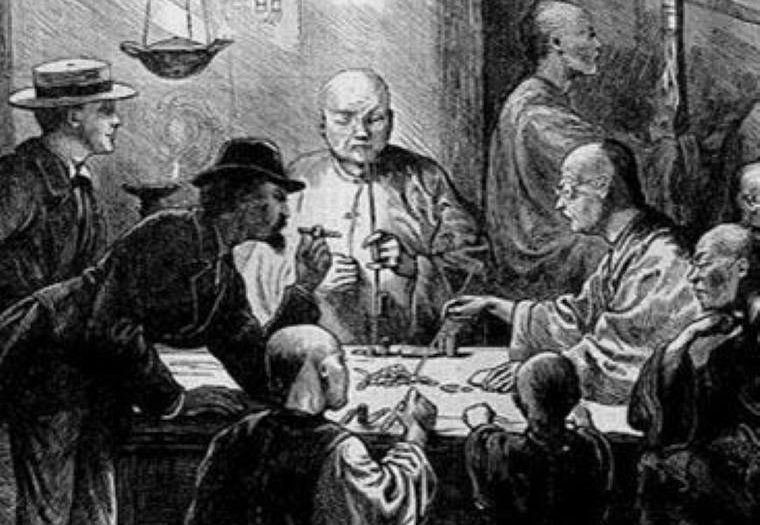Where do pigeons, the Great Wall of China and the Wild West come together? Why in keno of course! Get your keno history lesson here.
Keno’s Chinese Origins
Keno is one of the oldest games in the world, and is believed to have first been played in China over 2000 years ago.
The game was reputedly invented by a man named Cheung Leung as a money spinning venture. He needed to raise money to fund his army and then rebuild his city following a destructive war. The success of this idea soon meant that the game spread throughout China and it was even used to fund building work on part of the Great Wall of China.
In these early games, announcements of the draw were carried to surrounding villages using white pigeons – and so the game was originally known as the ‘white pigeon’ game. As you’ll see, the name has been changed several times since then, mostly to get round legal or taxation issues.
Keno as we now know it uses the numbers 1-80, but the original Chinese version of the game used 120 characters, and players could choose just 10 to bet on. Those characters were from a poem called “The Thousand Character Classic”, which was used to teach reading and writing to children. The numbers of characters used reduced from 120 to 90 over time.
Keno Spreads to America
The game was brought to America in the 19th century by early Chinese immigrants and was played in the ‘wild west’ by workers on the Old West railroad. At first Keno was illegal in America, but it was nonetheless widely played, especially around big cities like San Francisco. However, English speaking Americans had difficulty with the Chinese characters. So in order to widen the appeal of the game, in the early 20th Century keno operators replaced the 90 Chinese characters with Arabic numbers and reduced the size of the draw down to the current 80.
Omaha, Nebraska was for a long time the keno capital of the U.S. But when gambling was banned in Nebraska, Nevada took over the game.
Until the 1930’s the game was still known as the Chinese lottery. The problem was that lotteries were at that time illegal, even though many other forms of gambling had been legalised. So in an effort to get round the gambling laws, casino operators in 1930’s Nevada disguised it as a bingo-type game and changed the name to Race Horse Keno – bingo and horse race betting were both legal! That explains why many keno operations still call their games “races”.
When the U.S. Government started to tax off track betting, the name was changed again, this time to just Keno.
In the 1960’s the keno payout limit in Nevada was $25k. In 1979 it was increased to $50k. In the late 1980’s the cap was eliminated, and casinos can now set their own limits.
Other changes to the game have involved the introduction of tickets that allow several different bets – ‘ways’ – on the same ticket, and a wide variety of special games that are offered in individual casinos. Find out more about keno tickets.
Keno in Australia
Keno has a long history in Australia, dating back to the early 1900s when it was first introduced in New South Wales as a form of lottery called Art Union. The game underwent a name change to Keno in the 1960s and was introduced to licensed clubs and hotels in the state.
Keno continued to grow in popularity and eventually spread to other Australian states, including Tasmania, Victoria, Queensland, and Western Australia. The game is now widely played across the country, with numerous venues such as pubs, clubs, and casinos hosting regular Keno draws every few minutes.
Players of Keno in Australia typically choose between 1 and 20 numbers from a pool of 80, and then wait for a random draw of 20 numbers to see if any of their chosen numbers match. The more numbers they match, the higher their winnings. There are variations of the game, such as Jackpot Keno, where the prize pool can grow substantially, increasing the potential winnings for players.
Keno in Australia is regulated by state governments and is operated by gaming and wagering companies such as Tabcorp, which runs Keno games in New South Wales, Victoria, Queensland, and the Australian Capital Territory. The game has become a popular pastime for many Australians, who enjoy the quick and simple nature of the draws, as well as the potential for large payouts.

